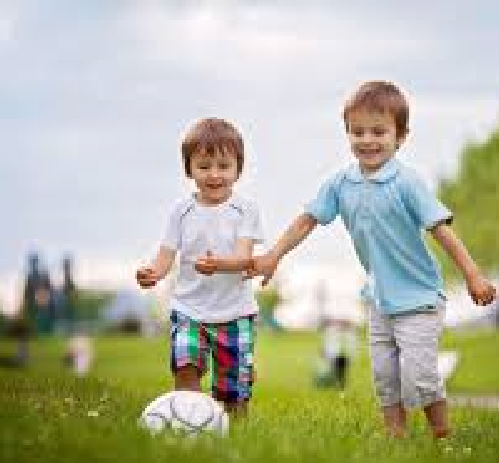- 30 years experience in the field of Special Education
How to Deal With Anxiety in Children
What is Dysgraphia?
June 22, 2015Oppositional Defiant Disorder in School Aged Children
June 29, 2015 Anxiety and adults is something that happens once in a while (usually!) and it tends to deal with doing something new, something in front of people, or going someplace new. I tend to get anxious for example, when I am going to a new doctor for the first time. Nervousness and anxiety are two very different things. Nervousness is natural whereas being anxious or having anxiety is about the flight or fight response. Your body and your mind essentially get confused in a situation where you might be doing something new and it doesn’t know if it should fight (be brave oh wise one) or take flight (get the heck out of there your brain starts screaming!) It really is all about confusion between the brain and the body versus what is going on at the time and it can be a frightening situation, whether you are an adult or a kid. When you are an adult though you can read books and check out lectures on anxiety, kids can’t do that so they depend on us to help “fix” it for them. Since this deals primarily with the brain the most error correcting way of going about this is medication, but a lot of parents don’t want to do something that extreme, and I don’t blame them. If your child has anxiety or even nervousness, there are other ways of going about it besides medicating your child, as a top teacher in NJ Shari Duddy has many years of experience in helping children cope with anxiety; take a look at some of the tips below.
Anxiety and adults is something that happens once in a while (usually!) and it tends to deal with doing something new, something in front of people, or going someplace new. I tend to get anxious for example, when I am going to a new doctor for the first time. Nervousness and anxiety are two very different things. Nervousness is natural whereas being anxious or having anxiety is about the flight or fight response. Your body and your mind essentially get confused in a situation where you might be doing something new and it doesn’t know if it should fight (be brave oh wise one) or take flight (get the heck out of there your brain starts screaming!) It really is all about confusion between the brain and the body versus what is going on at the time and it can be a frightening situation, whether you are an adult or a kid. When you are an adult though you can read books and check out lectures on anxiety, kids can’t do that so they depend on us to help “fix” it for them. Since this deals primarily with the brain the most error correcting way of going about this is medication, but a lot of parents don’t want to do something that extreme, and I don’t blame them. If your child has anxiety or even nervousness, there are other ways of going about it besides medicating your child, as a top teacher in NJ Shari Duddy has many years of experience in helping children cope with anxiety; take a look at some of the tips below.
Discuss Worry and Fear
In some cases a child may feel nervous, anxious, even petrified of a certain situation and even though you may not know why; chances are they do. Make sure you leave an open line of communication when it comes to these “scary” situations and allow them to come and talk to you about why they feel scared about going on the business or going to the dentist or going to the park, etc. You can even insure them that they can talk to you about anything and that you will help them as much as you can. Some kids are even anxious about things that aren’t even really something to be anxious about. I used to do this as a kid – I had a wildly creative and imaginative brain and everything that could go wrong was always in my head as a worry; what if it did happen, what I would do, how would I handle that situation. Most of the time my mom would talk to me about those thoughts and help me realize that the things I were thinking were nothing to worry about at all.
Outlets for Relieving Stress and Anxiety
When discussing worry, fear, anxiety or nervousness with your kids, make sure that they know there are ways they can release their stress, tension and anxiety in creative and natural ways. Some ideas are: Writing in a journal book about how they are feeling about a specific situation or person. Drawing or painting using crayons, markers or even paint to release their stress, playing sports, even if it’s not for their school, things like baseball and tennis are a great way to relieve stress and tensions, as well as any anger issues. Another thing to consider is letting your kids talk to someone. It can be a school counselor, or even someone on a more professional level such as a therapist. There are therapists specifically for anxiety and for kids with anxiety so you can be assured that they will know how to talk to your kids about this issue.
Setting an Example
No matter what you think, your kids always look up to you and watch what you do. They also will often act how you do in situations, now and when they are older. So when it comes to a fearful situation like something as simple as a spider in the house or something as serious as pitching a new idea to your boss for a promotion, put on a happy face and let your child see how brave you are – even if you are nervous and how brave they can also be in situations that pertain to them; taking a test at school, seeing a new doctor, making a new friend, signing up for a school sport, etc.
Monitor TV and Video Games
Sometimes, and I’m not saying all the time! But sometimes when your kids watch anxious “on your seat” movies or play video games they can become anxious or feel worried. This isn’t really about the media itself, it’s about how the child feels while watching it. If you have a little one, try to control what they watch or when they watch it. Riveting or action packed movies, TV shows or video games before school can cause anxious feelings in the same way with adults that scary movies can sometimes create nightmares or bad dreams. If you’ve done all of these things and your child is still anxious you may want to discuss this issue with their teacher/s.

